A little wisdom and (gasp) maturity for my 27th birthday: 27 easy ways to travel more responsibly, from several years’ of experience on the road.
Birthdays are a strange thing.
When not involving copious amounts of alcohol and poor decision-making, they’re sentimental, a time for both reflecting on the past and pondering future years. Like New Year’s Eve, except much more narcissistic.
Unfortunately, I am not good at either of those things.
The extent of my “reflection” is limited to why the EFF did I cave and give the dude my Facebook ID? I knew those 48930284 video calls would come.
Looking forward is an even more uncommon exercise, equally restricted to note to self, no more Facebook friending South Asian men. POLITENESS AND POLITICAL CORRECTNESS BE DAMNED. Just kidding you’ll probably cave in two hours.
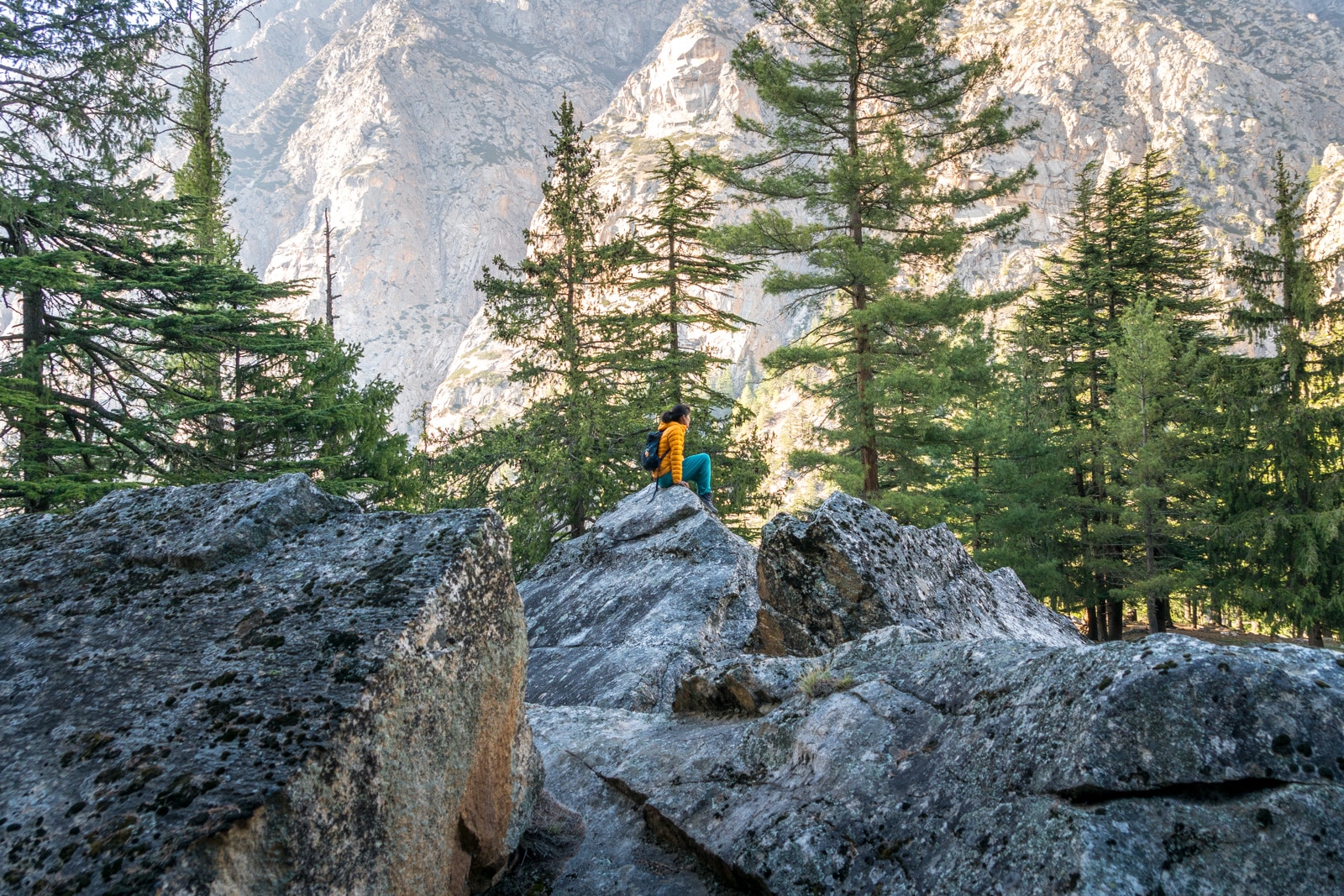
Pondering how to respond to Facebook friend requests from unknown men, as always
Time to grow up
Yet as I grow older and (theoretically) wiser, I do feel a growing pressure to mature.
Not just because my parents still insist I get a “real” job at 27, or because I’ve noticed bird watching is almost appealing, but because my words are now read by hundreds of thousands of people.
Having influence in the travel industry is a dangerous position to be in, one that should be approached with caution. Travel has enormous potential to bring opportunities and finances to communities around the world… but it is much more likely to consume and destroy them if not managed properly.
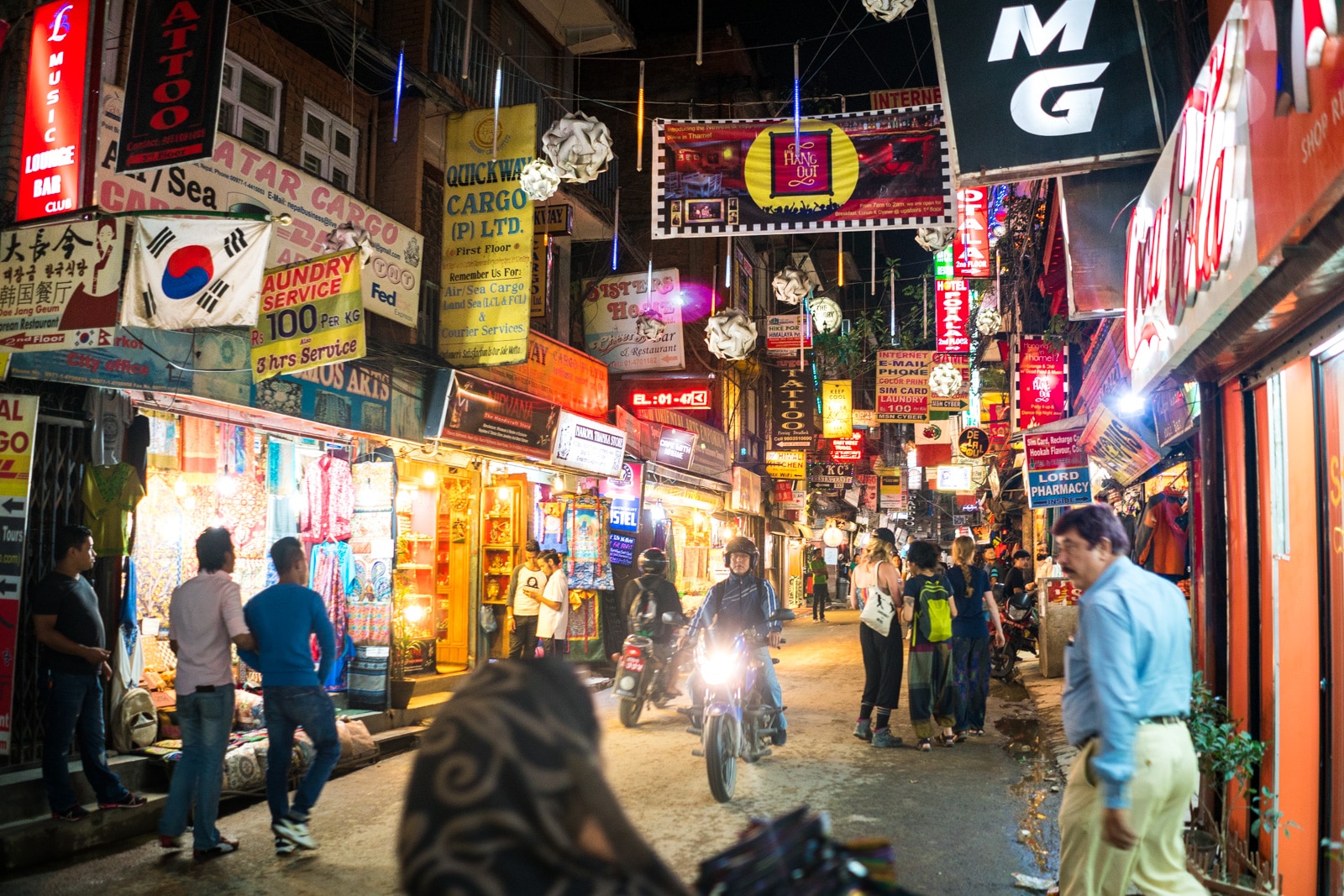
An excess of tourism in Kathmandu, Nepal
I often wonder if blogging about my travels is “right” these days. Bringing more tourists to off the beaten track destinations can be a blessing, but not if the tourists don’t know how to behave themselves or respect local culture. I don’t want to be responsible for the Elephant Pants Army’s siege of Village X, or the Selfie Squad occupation of Island Y.
For my birthday this year, rather than ramble about adventures past, I’d like to share a different part of my travel experience and—dare I say it—wisdom.
In the name of everyone growing up juuuust enough to not destroy the world we know and love, here’s a list of 27 ways we can all be more responsible travelers… or, at least, not travel like a bunch of ignorant a$sh*les.
They’re all relatively simple things that almost anyone can do; that means no excuses.
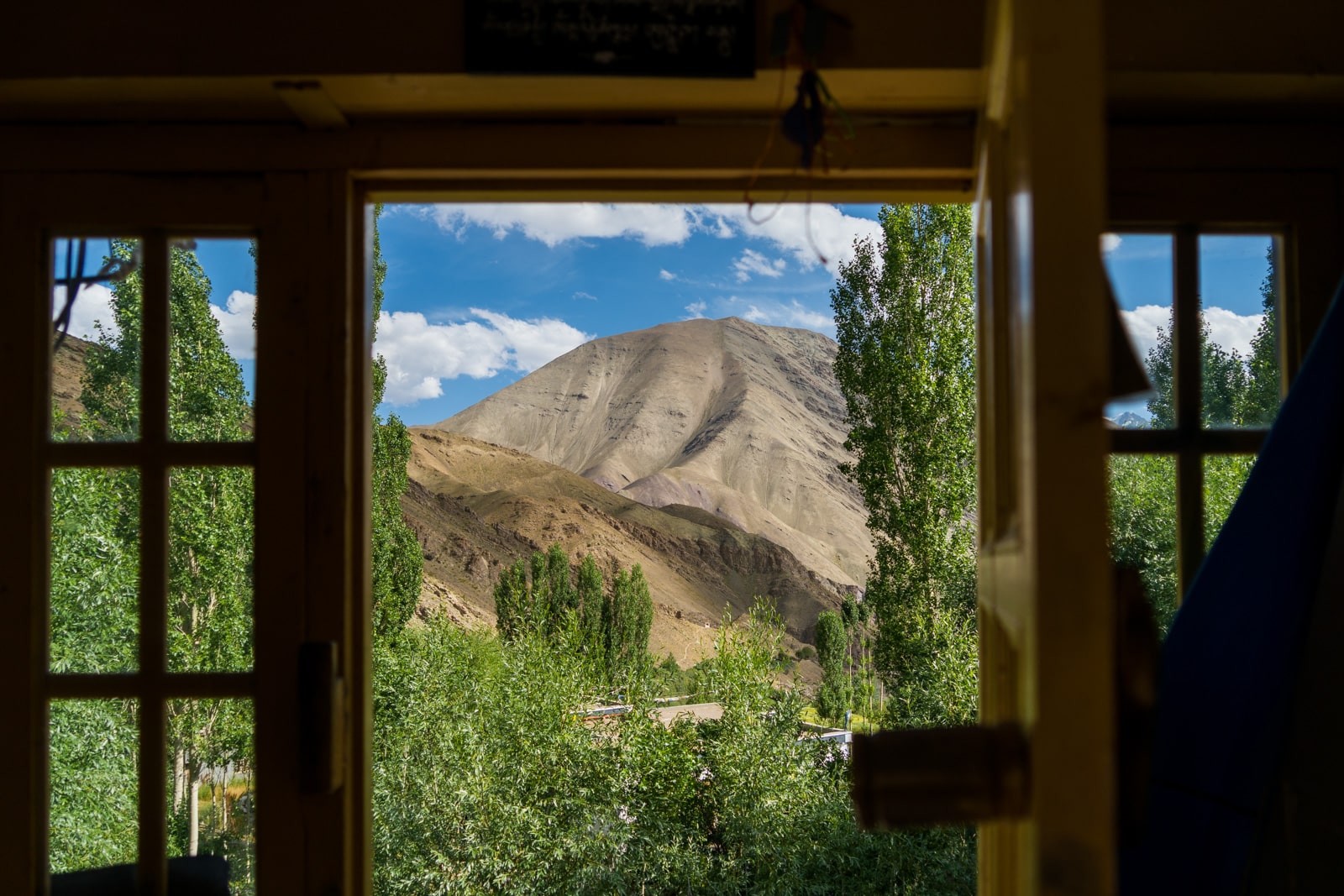
Perfect views at a homestay along the Sham Valley trek in Ladakh
27 easy ways to travel more responsibly
1. Remember you’re a guest in someone else’s country.
Rule #1 through 100. As a guest in someone’s home, you’re there to interact with people and enjoy their hospitality… not rebuild their house.
It’s the same when you’re in someone else’s country—you’re there to learn and enjoy, not “fix” parts of local culture you disagree with. Just as only a homeowner can decide to change their house, cultural changes should only come from within.
2. Don’t throw your trash on the ground.
Rule #101-100,000,000. I shouldn’t have to say it at this point in time, but I know I do to some of you.
Travel is a privilege, and it’s your job not to abuse that privilege… or fill it with plastic trash. If out and about, either throw your trash in a bin, or collect your trash in a bag and dispose of it properly once you can. NATURE IS NOT NICE WHEN IT LOOKS LIKE A LANDFILL. /endrant
3. Go off the beaten tourist track.
At this point, we all know what mass tourism can do to a place.
Unless you actually enjoy streets filled with souvenir stalls, touts, and restaurants advertising AMERICAN CHINESE INDIAN FRENCH GERMAN food everywhere you go, head off the beaten track. Prove to locals that not everyone wants the same Disneyfied crap.
Read: My favorite off the beaten track places in India.
Of course, not everyone has time to travel to the absolute middle of nowhere. Know that going off the beaten track doesn’t have to be traveling to places no one’s heard of—it’s also choosing to walk a few blocks away from the main tourist streets, asking for recommendations from random people you meet, choosing a restaurant whose name you can’t read but looks good nonetheless.
4. Spread the wealth.
Going off the beaten track is one way of doing so—more money reaches communities outside tourist hubs—but also spread your wealth on a small scale.
Don’t buy from the same convenience store every day. Eat at different restaurants each evening. Buy some fruit from that dude on the street, rather than in a supermarket. Choose to stay at a sustainable local homestay instead of a big fancy hotel.
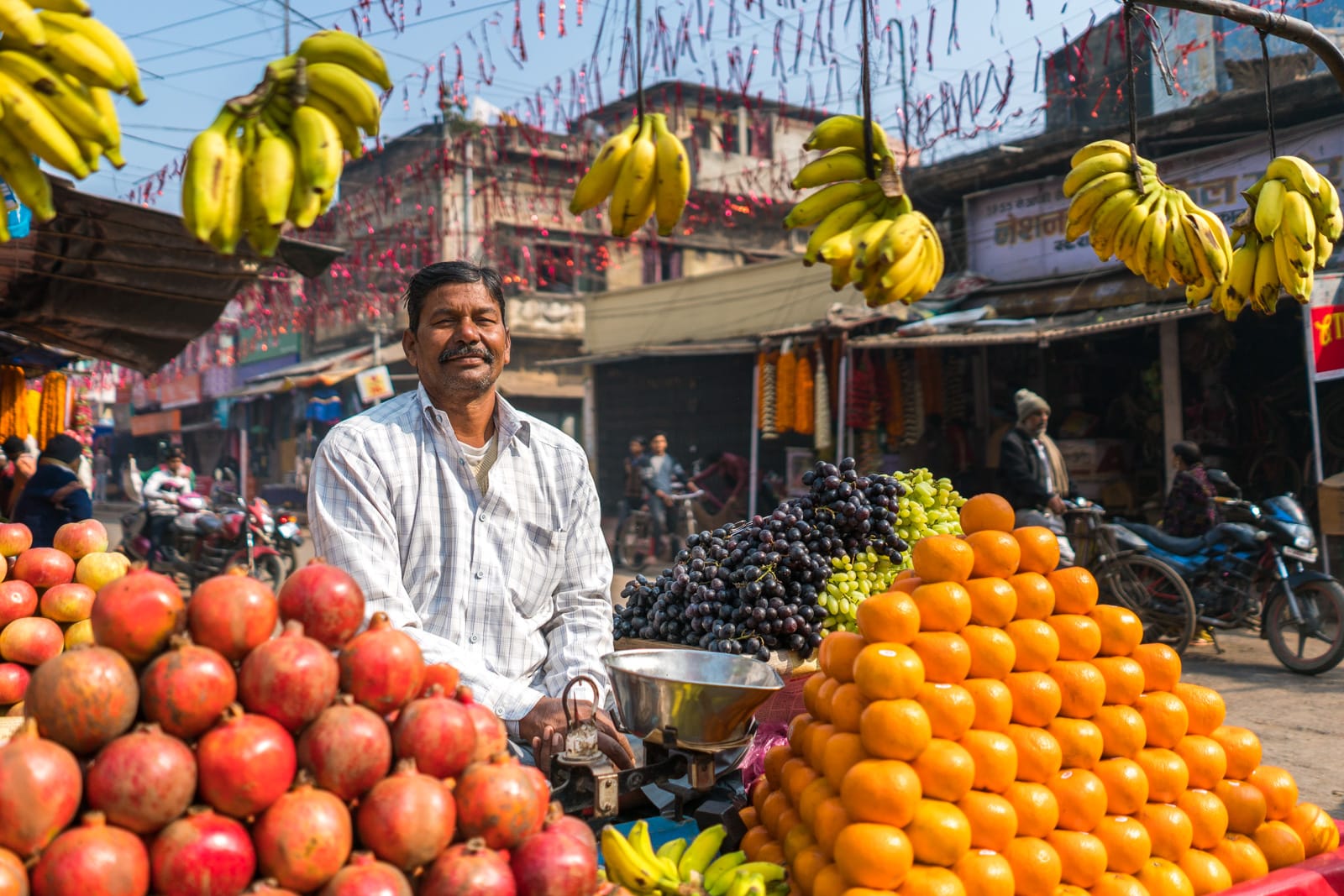
How can you resist such perfectly piled produce?
5. Don’t just eat in tourist restaurants.
Like, seriously—did anything good ever come from the AMRERICAN CHINES INDEAN FRANCH GEARMAN restaurants?
(No, alcohol doesn’t count.)
Everyone needs a bit of home comfort every once in a while… but let’s keep it to just that. Eat in local restaurants to encourage local culinary culture, rather than destroy it. Or just to save your taste buds from a blasphemous meal.
Eating local also has the benefit of often being more sustainable—local restaurants don’t rely as much on products imported from abroad to satisfy foreign palates.

The tourist area of Varkala, Kerala in India is filled with costly restaurants serving bland food. But a short walk into the main town yielded a damned delicious thali… for only 40 Rs!
6. Carry a Steripen. Or a Lifestraw bottle. Or any water filter, really.
Bottled water is a massive waste of plastic, energy that goes into manufacturing and disposal, and your money.
A Steripen for sterilizing water (with UV light) and making it drinkable was one of the best travel investments I ever made. Do it—buy a Steripen now. If you prefer to have a filter that doesn’t require power, Lifestraw bottles are actually glorious.
7. Fix things instead of throwing them away.
Travel can be rough on your belongings, but particularly in developing countries it can be easy to patch things up. Fixing is more sustainable than throwing away and buying anew, and it’s another way to spread your spending.
Broken sandals? The shoe wala on the street can fix ‘em up real nice for 10 Rs. Torn shirt? The tailor down the way will stitch it up in a jiffy. More sustainable and a great way to meet people.
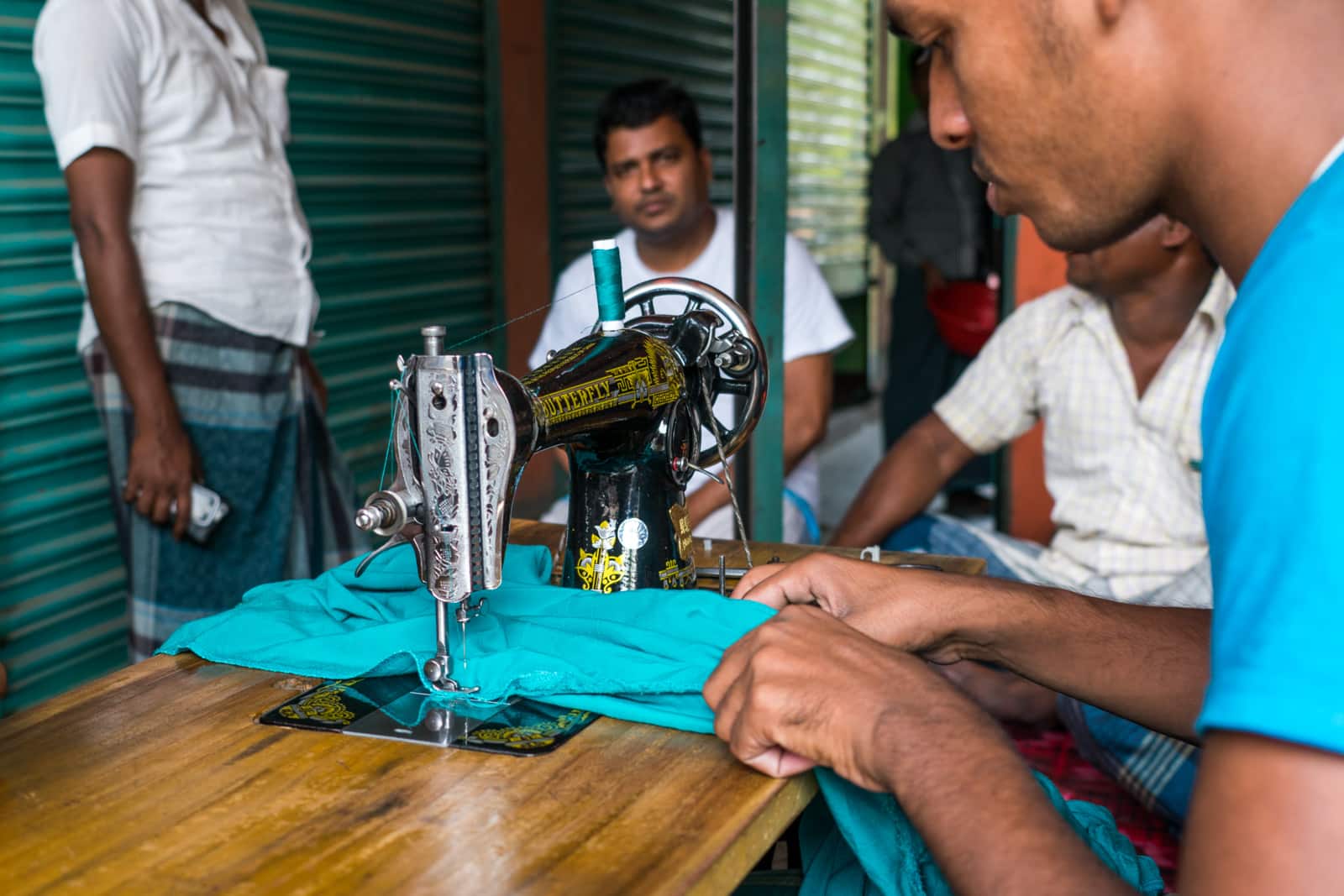
A tailor in Bangladesh stitching up my pants after I shredded them while cycling… for $0.10!
8. When in Rome, do as the Romans do.
This could be anything from eating with your hands (for the record, it’s pretty satisfying) to accepting that your tea will come with milk and enough sugar to give an elephant diabetes. Well, maybe you could ask for a bit less.
Cultures often fade in places where people rush to satisfy foreigners. Following locals’ leads instead of expecting everything to conform to your culture will be both educational and better for your hosts’ heritage.
9. Try to interact with more locals than travelers.
Meeting locals can be difficult at times due to culture or language barriers, but it’s worth the effort.
You’re (hopefully) not in a different country to learn about the numerous ways your hostel bunkmate can make cocktails out of things available in the convenience store on the corner. Incredible as they may be.
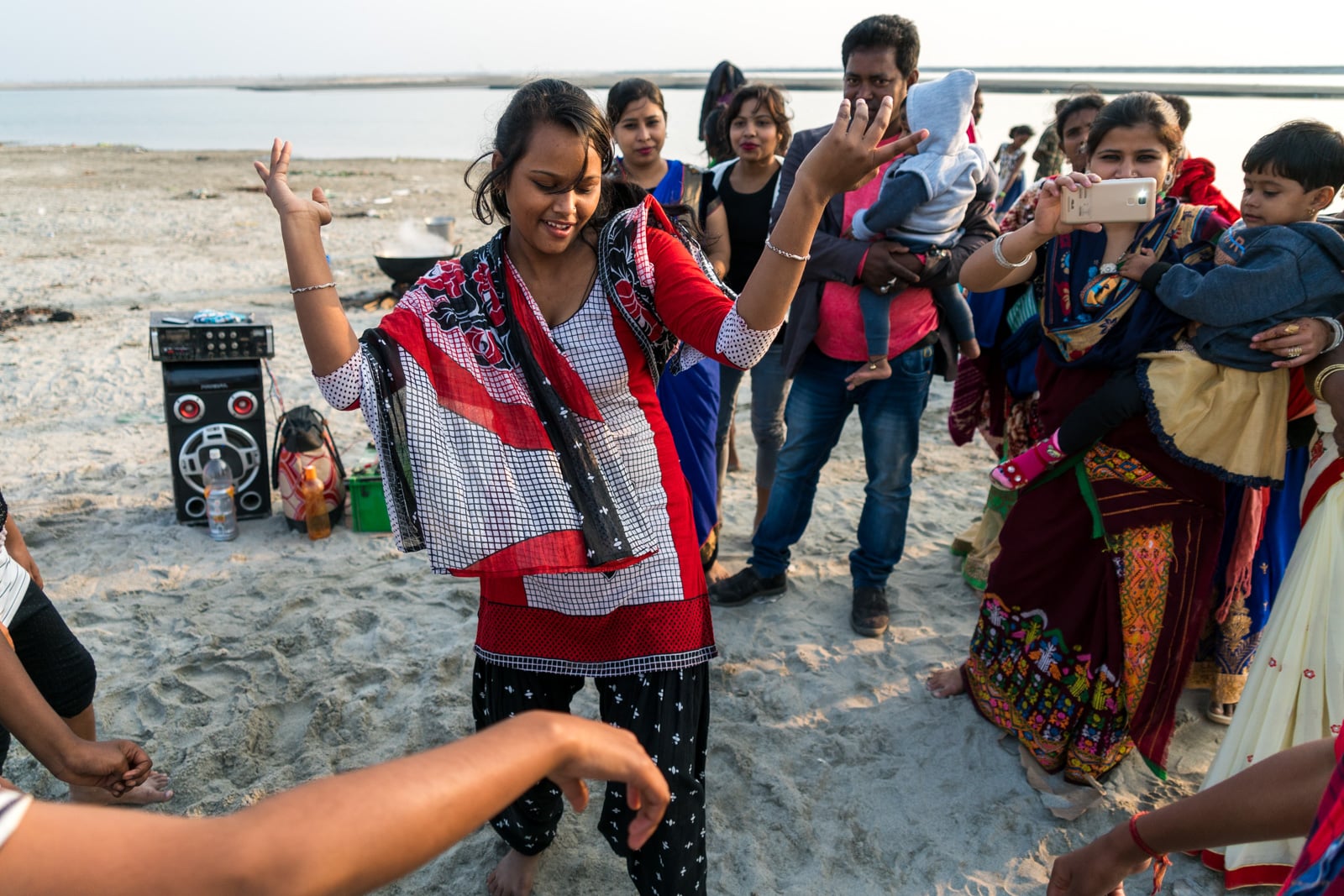
Learning how to dance from a local family on Majuli island in Assam
10. Seek out local experiences over foreign ones.
Did you really travel to another part of the world to drink imported Guinness in an “Irish” pub?
Did you really think Zara’s selection would be that different from home?
Do you really want your tourist money to end up in the coffers of some big bad international corporation, rather than in a local business person’s wallet?
11. Respect local dress.
Yeah, I know, women’s bodies are temples, my body my choice, etc. etc.
That’s fine in your own culture, but again, you’re a guest in someone else’s. You wouldn’t show up in cutoff shorts and a crop top to your grandmother’s church, so why would you do that at a temple?
Besides, I’ve found people are much nicer when you make an effort to wear local dress. (Within reason. Wearing a sari at the Taj for the ‘gram doesn’t count.)
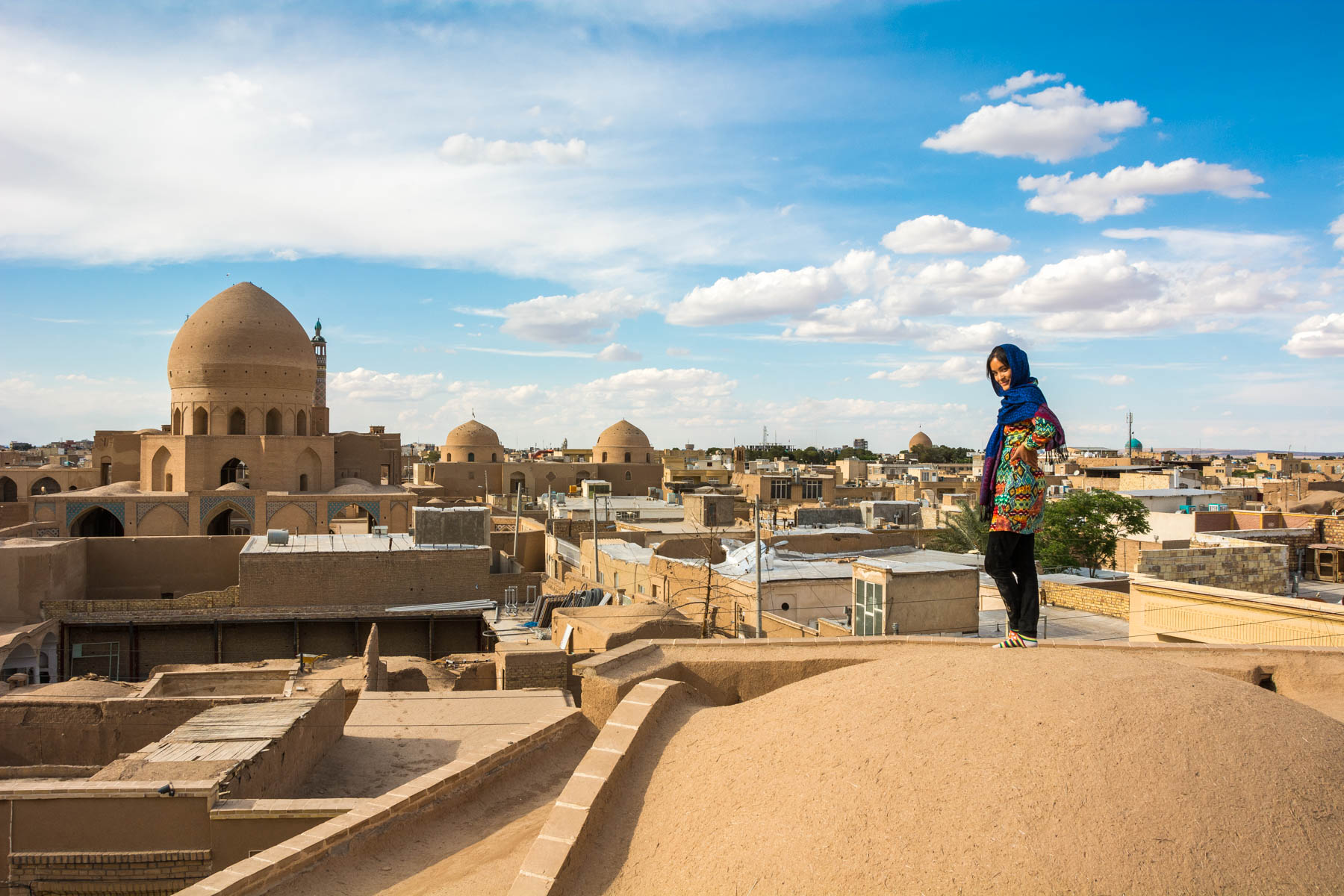
Checkin’ out the rooftops of Kashan, Iran in a local manteau and headscarf
12. Avoid planes where possible.
Not only are they gas-guzzling flying machines that are killing our atmosphere, they’re also expensive, stressful, and involve being treated like cattle for hours as you sit in a gas chamber of Panda Express-induced farts. Overland travel is far more interesting anyway!
13. Use public transportation.
It’s more sustainable because it’s used by the masses. It’s cheaper than taxis or hiring a driver. Oh, and telling people about how you sat next to someone’s chickens on a bus for several hours is a much more fun story than telling them about lunch at the gas station restaurant.
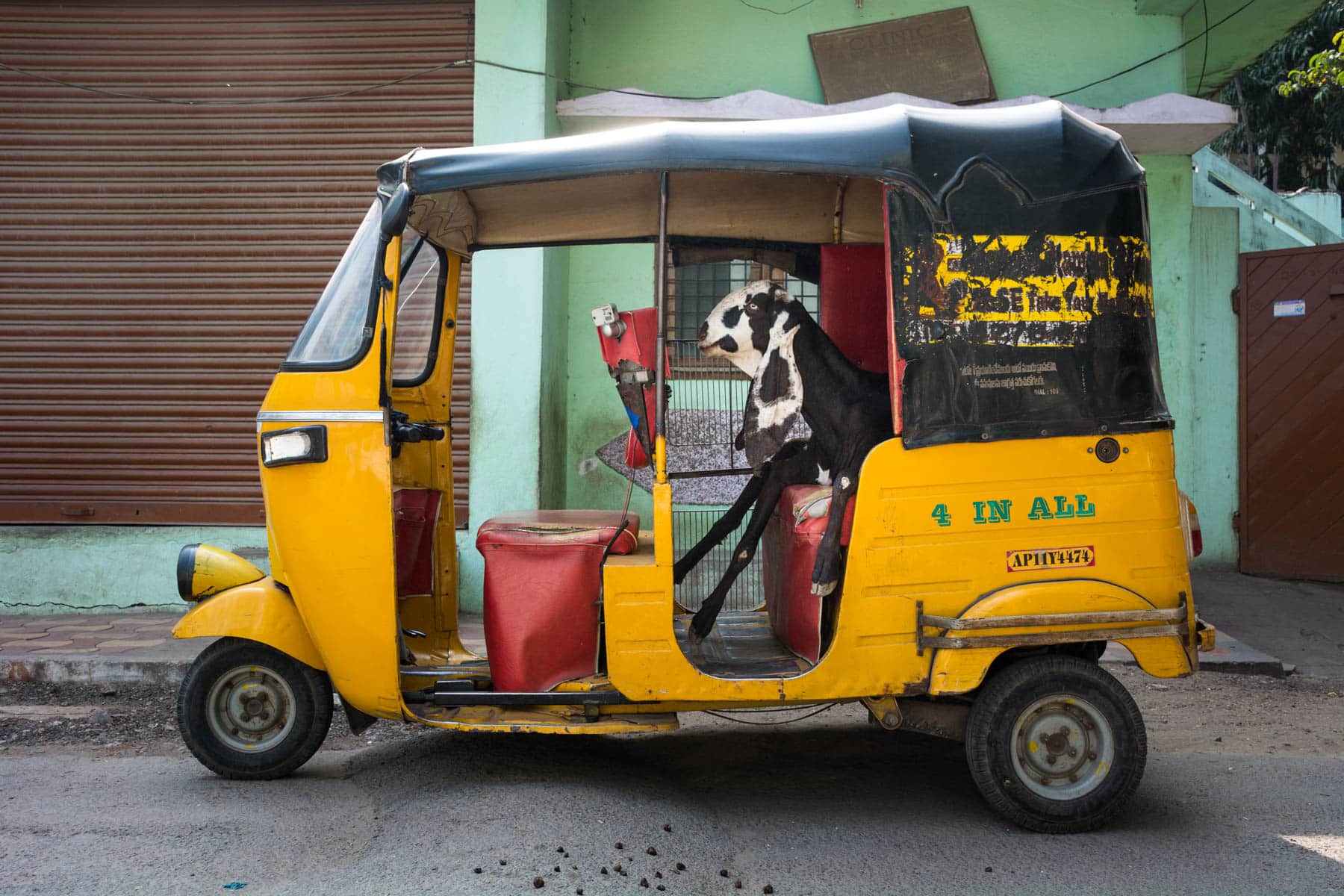
“… and then I had to share my seat with a goat…”
14. Engage with people from all walks of life.
The fact that someone is waiting on you or serving you doesn’t make them sub-human; don’t treat them as such. Every person has a story you can learn from.
15. Share your own story and experiences, too.
Travelers tend to ask a lot of questions from locals, but it’s not always an even exchange. If you ask someone about what weddings are like in their country, follow up with an explanation about how weird/crazy/boring/cake-laden marriage ceremonies are in yours. Uncornered Market calls this two-way storytelling, and they do a great job of explaining it here.
16. Share your culture… but don’t preach it.
When telling locals about your own culture, don’t do it from a high horse—your world is (usually) not better or worse, just different. An example: my home area in the US has more electricity, shops, and food diversity than many villages in rural South Asia, but it also has fatter, lazier, and more selfish citizens. Ya win some, ya lose some.

Afghanistan is a country vastly different from any in the West. Quality of life is higher in the West, but that doesn’t mean West is Best! Afghans are strong, resilient, and fiercely protective of families in a way most Westerners could never even fathom.
17. Don’t give things to beggars, especially children.
It may make your soul feel shiny and wonderful when you do, but in the long run, it just perpetuates begging culture. Ain’t nobody gonna stop begging if it’s still profitable.
Read: Please stop giving pens to children in India.
18. Be a plastic vigilante.
In Asia at least, vendors love taking plastic bags of things and wrapping them in more plastic before putting the whole shebang in a double plastic bag for good measure… with a straw.
NO!
Try to avoid packaged things, ideally eat your snacks on the spot, or at least insist that having a quadruple-wrapped bag of juice with straw does not make any sense at all. Because, you know, it doesn’t.
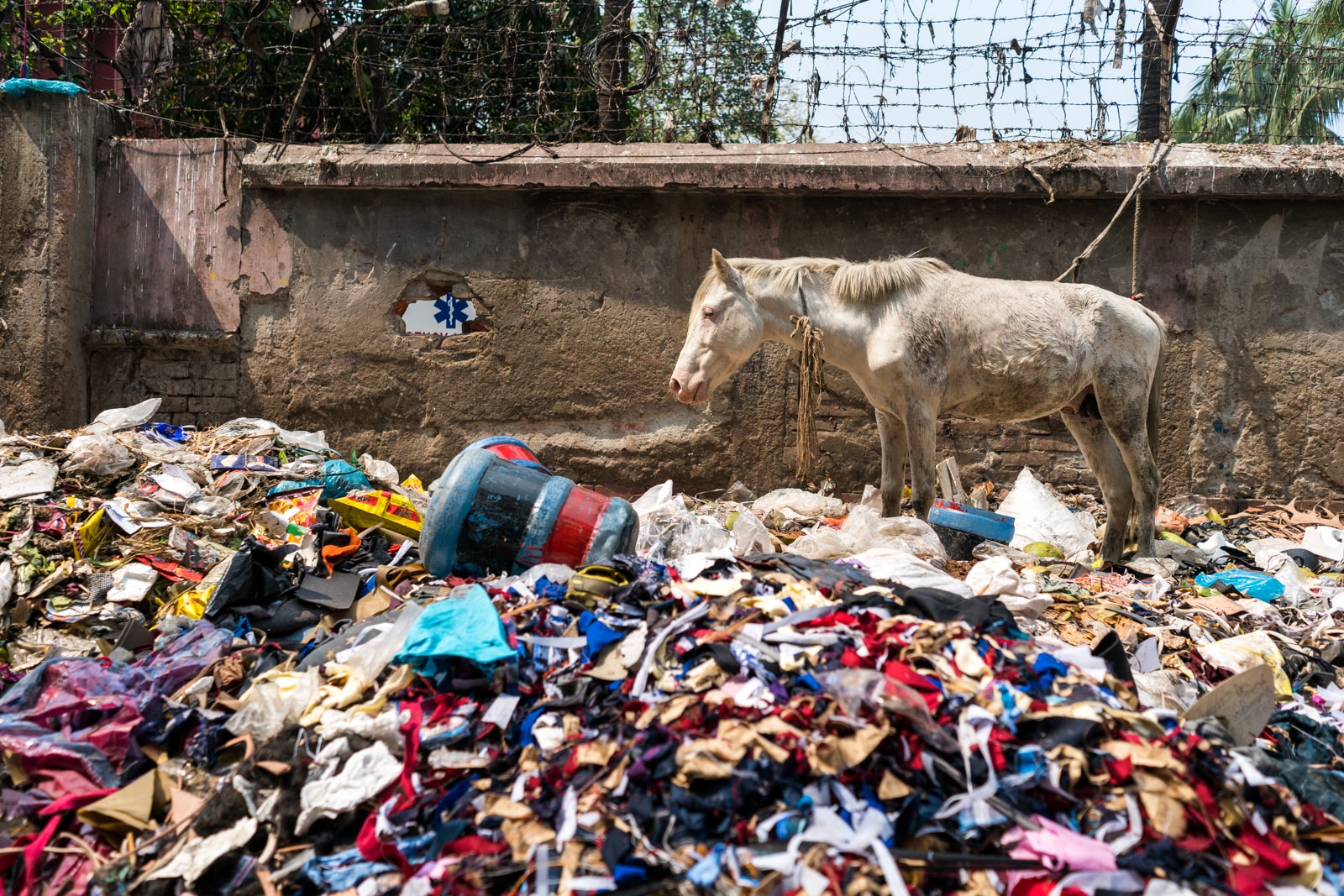
Trash accumulates, don’t forget it. One piece may seem trivial, but it all adds up quickly…
19. Buy local goods, not imported ones.
As godly as peanut butter and Nutella (… simultaneously) are, there are delicious alternatives in every country that don’t require shipping noms halfway across the world.
20. Buy goods from the source where possible.
This ensures that more of the profits end up in the creator’s pocket, rather than some crafty middleman. I know I’d rather buy my ajrakh scarf from the block printing workshop in Bhuj than from an AC showroom in Delhi, just sayin’.
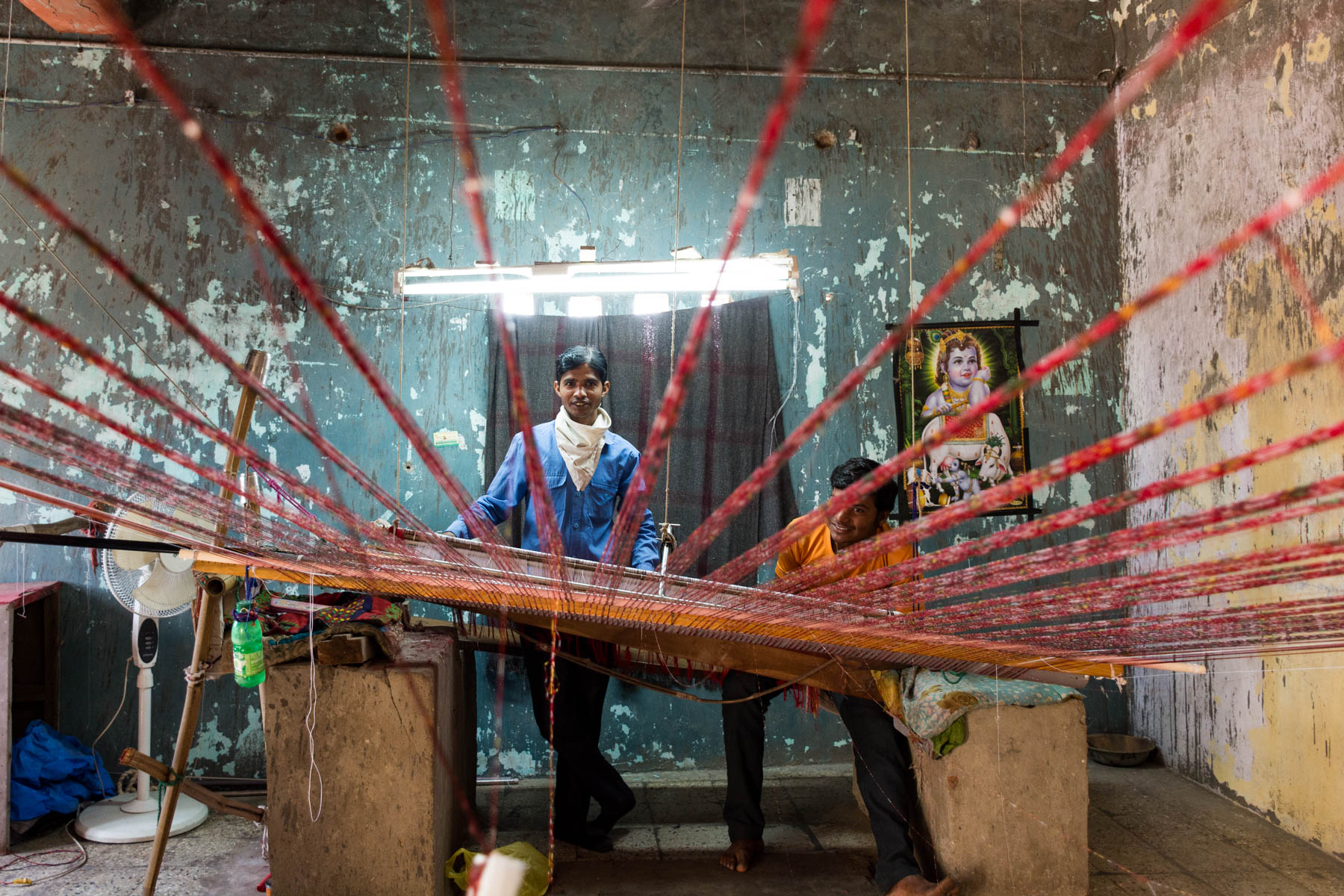
Some artisans weaving patola in Patan, India, the most incredible textile I’ve encountered in my travels
21. Ask before you snap someone’s photo.
Travel portraits are great and all—and I admit spontaneous shots are often the best—but how would you feel if some tourist came up and started snapping photos of you right in your face?
22. Don’t engage in poverty porn.
Though your shot of a starving street kid looking sadder than a basset hound or that snap of someone digging around in the trash might seem like your Nat Geo breakthrough… it’s not.
Unless you’re a photojournalist documenting a story about human suffering, you’re likely just perpetuating negative stereotypes about the country you’re in. Aim to empower people with your photos, and avoid sharing photos people would be ashamed of.
Read: Essential camera advice for beginner travel photographers
23. Beware of voluntourism.
It sounds real schnice to go build schools in Nigeria or work in an orphanage in Cambodia, but unless you have actual related skills and several months of time (at least) to dedicate to the project, you’ll be doing more harm than good. Do you really know how to build a school? I sure as hell don’t.
24. Seek out community based tourism opportunities.
Organized by locals, these usually involve homestays, often in more rural areas. They’re a good way to experience no-frills local culture, and they ensure your tourism money gets into real people’s pockets. A plus point: home cooked food! Om nom nom.
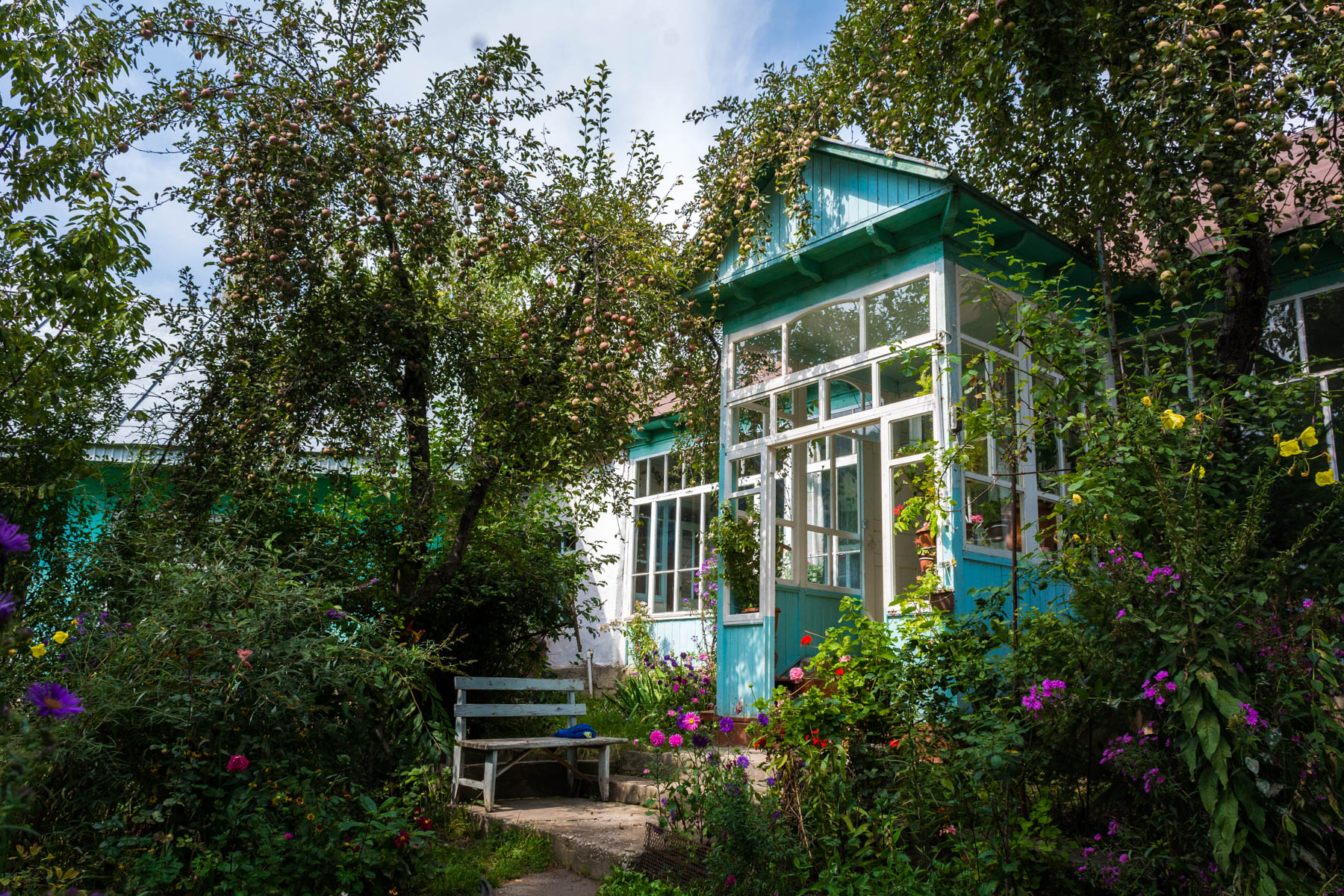
Kyrgyzstan is a good model for CBT (community based tourism) efforts. This adorable homestay in Arslanbob is one of 20+ that tourists can choose from in the centrally located CBT office. Civilized!
25. Watch yourself around local youth.
Bantering with the gaggle of cocky kids following you everywhere can be fun when drunk, but it sets a bad example. It’s very common for local youth to start dabbling in drinks and drugs because of foreign tourist influence. Not saying you shouldn’t drink or do drugs—I’d be a hypocrite if I did—but be discerning and discreet when you do get twisty.
26. Listen first.
Though you may think you know everything, I promise there’s always more to learn from locals. Take the time to listen to what others have to say before forming your own opinions. The more perspectives, the merrier!
Read: Rolling with the stoners in Hunza, Pakistan
27. … then question everything.
It seems contradictory, but it’s not.
People will tell you all sorts of things in your travels, and you should listen. But that doesn’t mean you should take everything at face value!
Locals have told me entire groups of people are terrorists, that I’d be kidnapped from perfectly safe places, that it’s impossible to travel to accessible areas, that Burger King is the best place to eat (it never, ever is).
Though locals often know more than we outsiders do, that doesn’t mean they’re always right.
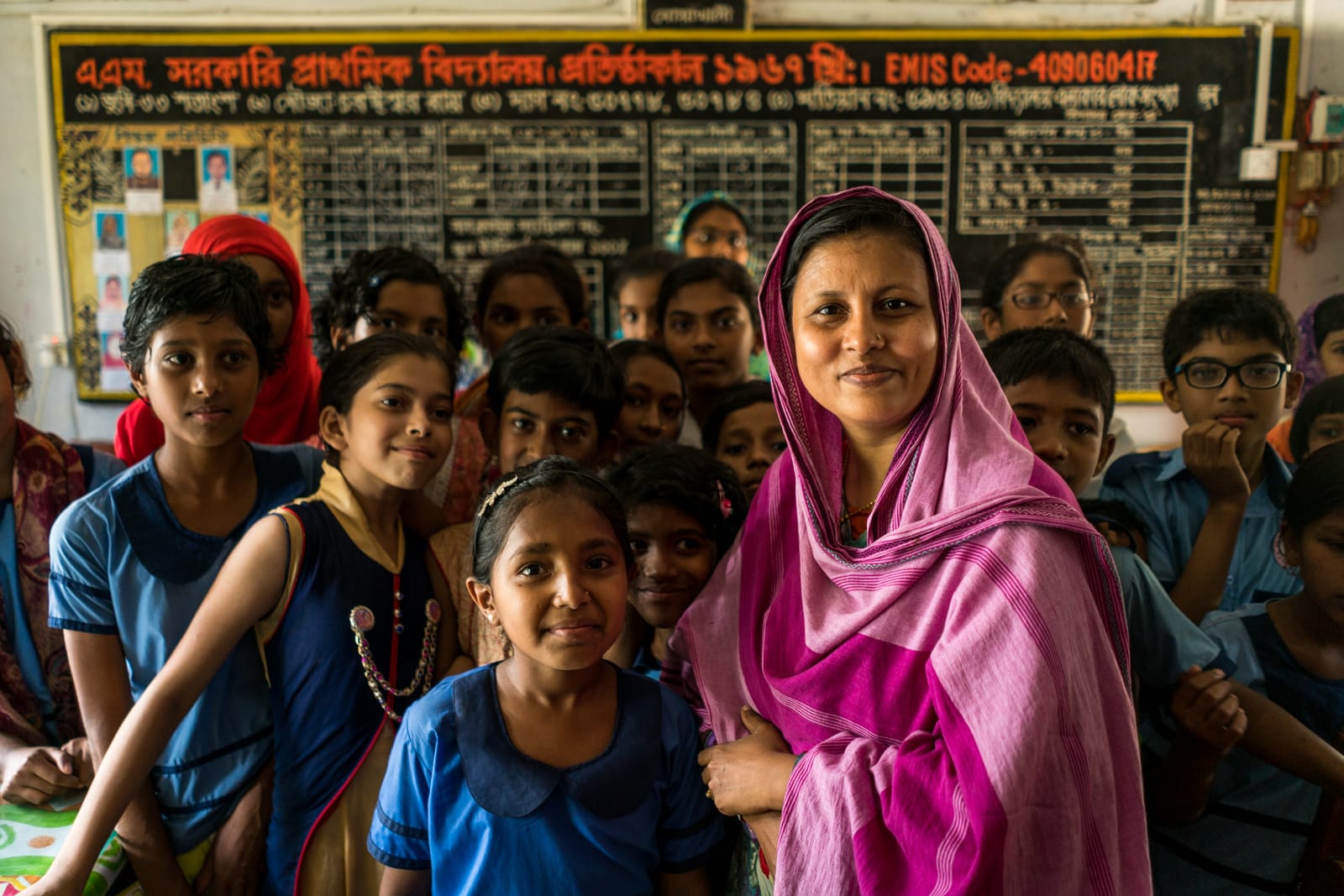
A local policeman told me 100% of people on Hatiya island in Bangladesh are terrorists. Do these schoolgirls look like terrorists to you?
Responsible travel is a goal, not a gimmick
Being a responsible traveler isn’t just about limiting plastic usage and keepin’ it green. It’s about making decisions on the road that will have a positive impact on locals, their economy, and their environment.
It can be confusing, and let’s be honest: everyone will make poor decisions at some point or another. I sure have.
What matters most is that you keep an open mind, and keep learning. Don’t worry about what already happened; it’s our responsibility as travelers to keep educating ourselves on how we can make better decisions in the future.
Whether you’re deciding where to eat, or deciding whether or not you really will be beheaded by the people in the next town over (probably not), just be patient, think first, and stay respectful—the rest will come with time.
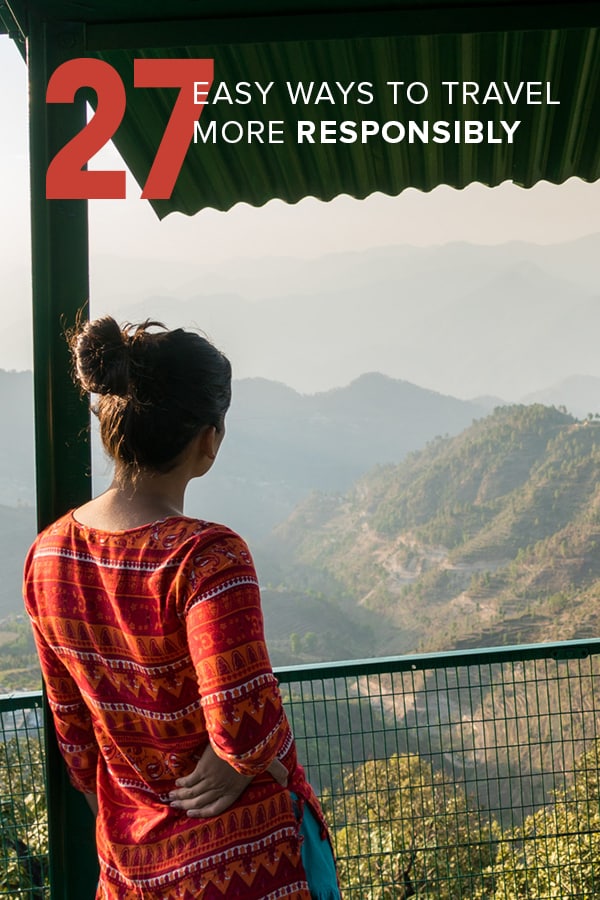
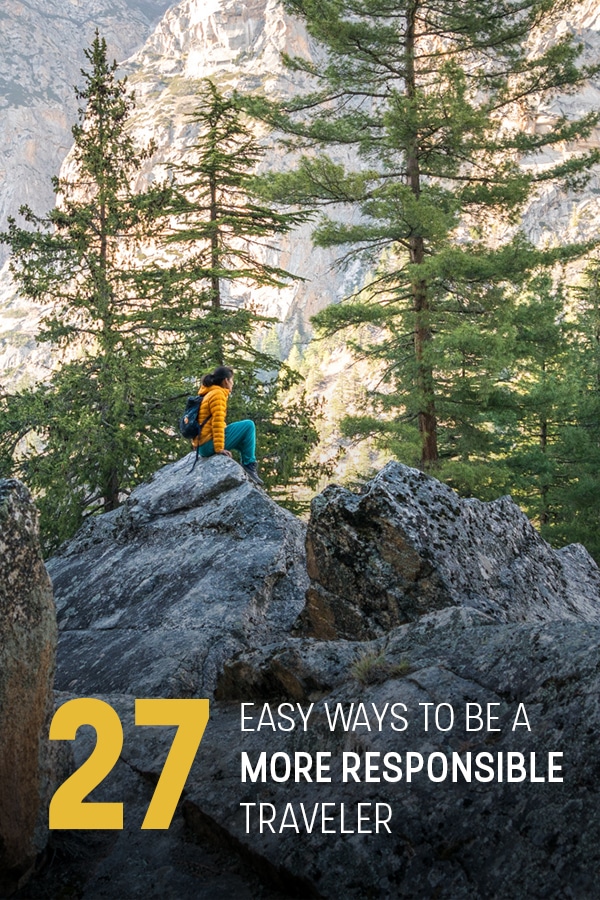
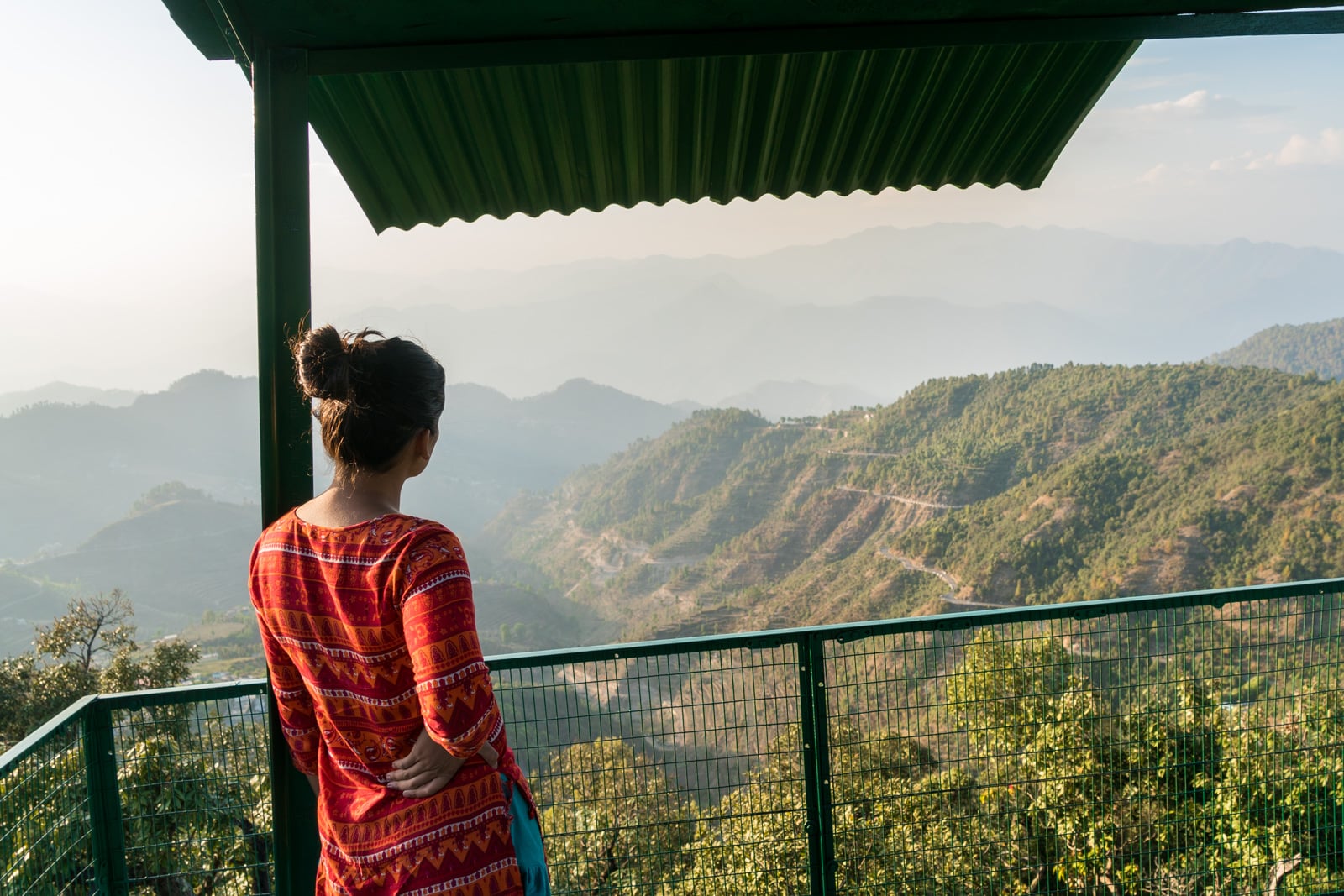


As I am preparing to go into the jungles of Peru, I came to your blog for some inspiration and advice. Thanks for both, Alex! 🙂
1. Quite agree!
2. Quite agree!
4. Yes and no. I’ve only used homestay once, in Almaty, Kazakstan, and that was embarrasing. The poor woman gave me the only decent room in the apartment with the only TV set and lived herself with her daughter in a small space. And I must admit that I tried go as much as possible by train in Burma, although the money supposedly went into the government’s pockets.
5. Quite agree, but I experienced the same problem in Hong Kong and Bangkok; either I could get local food or I could make myself understood and vice versa (and especially in East Asia I don’t want to eat anything but local food.
8. I will never, ever eat with chop sticks. When the Chinese can’t eat with them in a descent way, why on Earth should I try. I always carry camping fork, knife and spoon. As I say to the Chinese who stare at me in the dining car: “You invented the fine art of cooking, we invented the fine art of eating, and now I’m combining them both.” Arrogant? Maybe. Does it keep me from starving? Definitely!
9. Quite agree!
10. Quite agree!
11. A. minor problem for us men (especially for me, who never wear shorts nor short sleeves).
12. Privately I have used air travel once on my journeys to the seven continents and on the seven seas during 48 years of travelling.
13. Quite agree!
14. Quite agree!
15. As a Scandinavian it’s unnatural for me to tell something that hasn’t been asked about, sorry.
16. Se comment 15.
17. Even more sad are those little girls, age 5-8, in Burma and Cambodia, who sell postcards and souvenirs, and at Angkor Wat even have learned the price in the currencies of seven-eight countries, where most of the tourists come from, and even in that currency’s language! They should be at school!
18. Quite agree!
19. Quite agree!
20. Quite agree!
21. Important (being a railway enthusiast I took an interior picture of a dining car in Mali, not realizing that I was photographing muslims drinking beer in the middle of the day during Ramadan – I can tell you, that wasn’t popular!)
22. Quite agree!
24. Quite agree!
25. Quite agree!
26. Quite agree!
27. Quite agree!